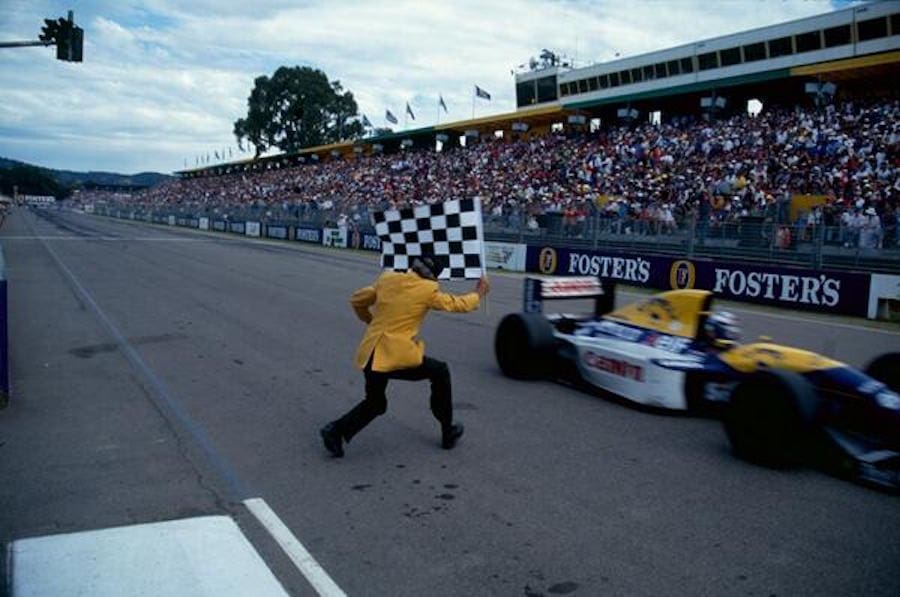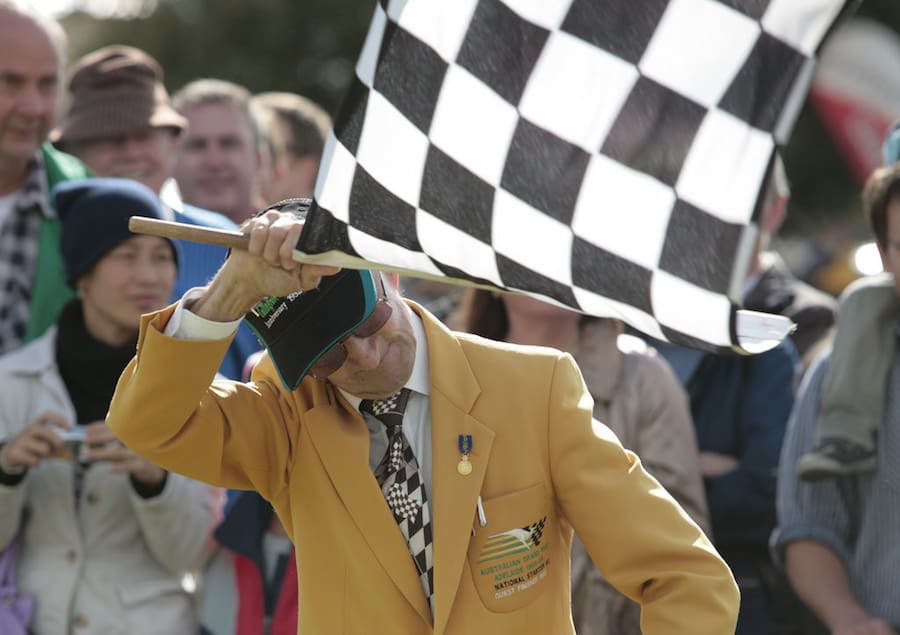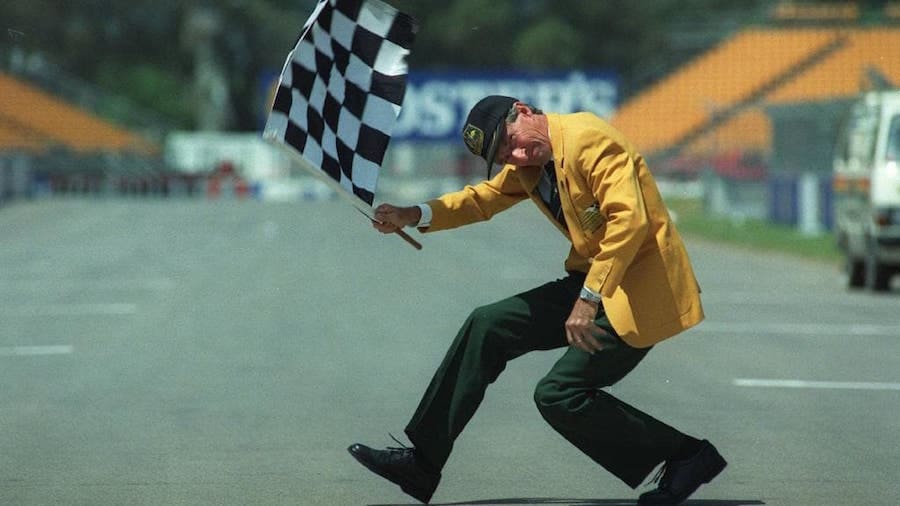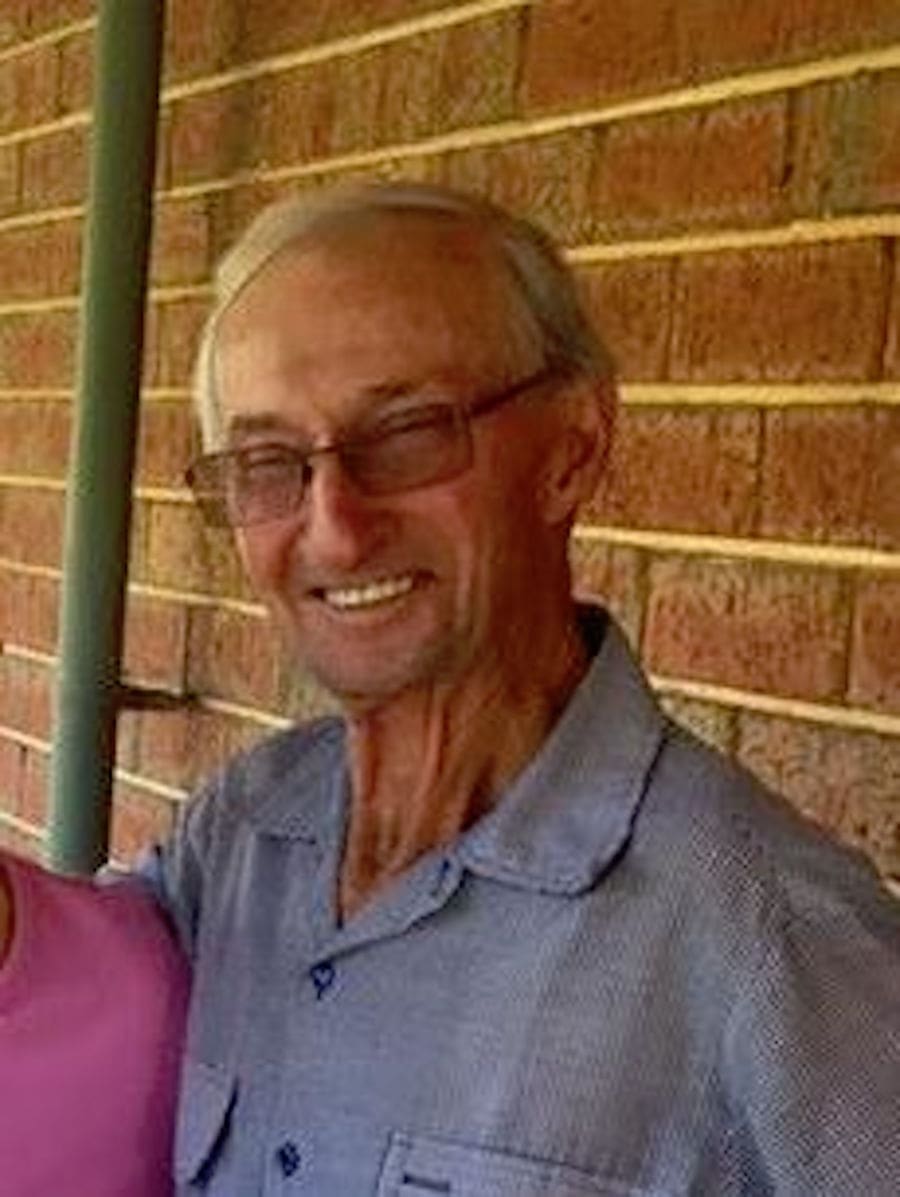Glen Dix’s involvement with motorsport began in the early ’50s – a time when Rowley Park Speedway broadcast live to air on radio. His job as penciller – recording results – in the broadcast box was as boring as batshit for an enthusiastic teenager craving excitement. A job with the ‘crash crew’ became available and Glen found himself on the infield where he became part of the action; a situation he’s sustained ever since.
It wasn’t long thereafter he was appointed Clerk of Course. Meantime he’d joined the Sporting Car Club, which controlled circuit racing at Wakefield Park; where Glen witnessed Jack Brabham take his first Grand Prix victory in 1955. Keen to be involved in anything that moved, Glen was asked to be the starter, a task he took to with gusto. However it was Glen’s organising abilities and keen attitude that marked him a most wanted man. Car rallies, winter trials, circuit racing and the most popular motorsport of the ’60s – speedway. There was neither a solo rider nor sidecar pairing that didn’t know Glen personally. Midget drivers and stockcar drivers saw him at least twice a night – first with the green then with the chequered at venues across the southeast. Hamley Bridge, Renmark, Mount Gambier and Portland. And all benefitted from steady work behind the scenes.

When go-karts were introduced in the ’60s, Glen – knowing all forms of sport on two wheels and four – was the man of the sport to assist in writing the regulations for the new form of motorsport, being appointed Senior Steward for the inaugural South Australian Championships in Dublin. And Glen paid his dues in spades, officialling at junior motocross events with up to 50 races per day over a weekend; even more at Australian titles.
“Indoor and outdoor motocross, speedway and longtrack – even the juniors – I enjoyed it all,” says Glen. “It was very rewarding.” His obvious ability to concentrate under duress saw Glen in the pits at Bathurst, lap scoring for stars such as John Goss and Peter Brock. “This was before the advent of computers,” says Glen. “And it was very demanding.”
It’s remarkable to learn that all these activities, together with Glen’s extensive fundraising efforts of the Lions and Rotary Clubs, took place while he held a full time position with SA Marine and Harbours in Port Adelaide – no doubt honing his administrative skills.

When Adelaide was awarded Australia’s very first Formula One Grand Prix in 1985, Glen – who had naturally expressed interest to be part of it all – was appointed as the man to handle the chequered flag. The rest is history. Glen’s zeal and commitment with the chequered flag made the sport pages around the world. No one knew his name but millions would comment ‘Hey, waddabout that guy with the chequered flag?!’
Glen’s aerobics earned him the title ‘The Chequered Flagman’ and provided more than fifteen minutes of fame for millions, but when he received the Medal of the Order of Australia (OAM) for service to motorsport in 2009, it was for sixty years hard yakka behind the scenes and his lesser known efforts raising money for charities such as Camp Quality.
In 2017, after 64 years, Glen stepped back from his motorsport and fundraising activities or as Glen puts it, “I decided to stand down before I fell down.”
Not one for computers, Glen apologised for the delay in his last letter as he’d been looking out for a friend with cancer. Glen now spends his retirement in Victor Harbour “trying to help several elderly people look after their gardens.” All while telling himself he needs to slow down.

By PETER WHITAKER